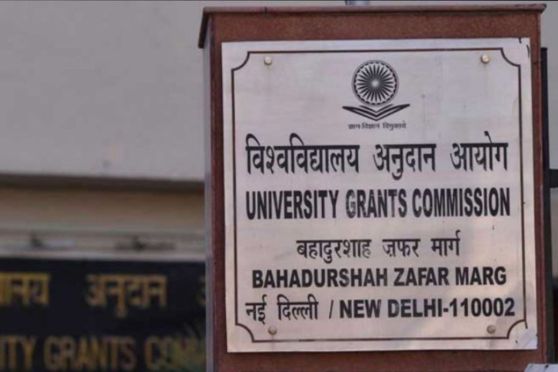|
|
| Protests against Habib Tanvir’s Ponga Pandit |
The irony was hard to miss. Last Thursday, as senior Union ministers were inaugurating the 34th international film festival in New Delhi, a few kilometres away in the same city hundreds of artists and cultural activists had gathered to condemn the attack on a Habib Tanvir play by the storm troopers of the Bharatiya Janata Party in Madhya Pradesh. Thus it was extremely hypocritical of L.K. Advani and his team to inaugurate a festival in the capital that supposedly celebrates free speech and imagination while his partymen in Madhya Pradesh stopped a renowned playwright and his troupe from performing on stage.
During the last two months, Habib Tanvir and his group, Naya Theatre, had been taking two of their recent plays, Ponga Pandit and Jisne Lahore Nahi Dekha Woh Janmaya Hi Nahi, to different towns of Madhya Pradesh. Sponsored by the Madhya Pradesh Sanskriti Parishad, a cultural outfit of the state government, the plays were chosen so as to promote awareness against casteism and communalism. While Jisne Lahore portrays the life of an old Hindu woman, who refuses to move to India after Partition and chooses to live with her Muslim neighbours, Ponga Pandit features a greedy Brahmin and an untouchable sweeper woman.
In almost all the towns that Habib Tanvir and his team toured with the plays, activists of the BJP and Bajrang Dal greeted them with brickbats and rotten eggs. In Hoshangabad, led by local BJP members of the legislative assembly, Rashtriya Swayamsevak Sangh activists began to throw chairs on the stage minutes after the performance began. When the police drove them out, they snapped the power supply to the auditorium. Similar incidents occurred in Jabalpur and Gwalior. When a group of artistes and intellectuals decided to stage the play just outside the state BJP headquarters as a mark of protest, armed party activists attacked them and burned the festoons they were carrying. The BJP called a 24-hour Vidisha bandh on September 23 to protest the staging of Ponga Pandit and police action against their irate members.
The Madhya Pradesh chief minister, Digvijay Singh, termed the police action as an attack on freedom of expression. However, in order to play safe on the eve of elections, he has quietly asked Habib Tanvir to withdraw Ponga Pandit from his repertoire. The whole incident follows the all-too-familiar pattern of ignorance and bigotry that many artistes and writers have tasted in societies riven by sectarian passions. In this case, there are a few local variations. The play that is in the eye of the storm, Ponga Pandit, is neither written nor directed by Habib Tanvir. It is a folk drama which has been very popular in rural Chhattisgarh for the last half a century. The play, according to Tanvir, “hits out at untouchability and exposes the illogicality inherent in the caste system. Its central theme is that no middlemen — including pandits — are needed in order to reach out to god.”
When a Bhopal newspaper checked out with the office bearers of the Madhya Pradesh state BJP unit, it was found that none of them had seen the play. This reminds us of the tumult caused by Salman Rushdie’s The Satanic Verses in India about a decade and a half ago. The most visible face of that protest, a highly distinguished former diplomat, too, had never cared to read the novel and formed his opinion from a review in a weekly magazine. When Shiv Sena activists in Mumbai went berserk over Vijay Tendulkar’s play, Ghasiram Kotwal, not many of them, it turned out, had any idea of what the play was about.
Thus, whenever there have been efforts to muzzle the artist, fanatic intolerance has been accompanied with ignorance and lack of perspective. But it becomes a complete farce when this ignorance is flaunted as a licence to become the self-styled custodians of public morality and faith. Ponga Pandit has been dubbed as anti-Hindu because “a person is shown to enter a temple wearing shoes”, and also because “a jamadarin hits the pandit with her broom stick”. As if these were not enough, an RSS mandarin has come up with an irrefutable logic: “A Muslim has no right to meddle in the affairs of Hindus.”
If the first two objections sound downright ridiculous, the last clinching logic, if allowed to have its way, has fatal implications for a pluralistic society like ours. If a Muslim has no right to meddle in the affairs of Hindus or vice versa, by an extension of the same logic, an upper caste Hindu has no right to meddle in the affairs of the people who belong to the lower strata of his society. Then most of our literature and a large part of our visual and other arts will have to be scrapped because these have traditionally been the domains of upper caste people who have chosen the lives of other communities as their subjects. A society that banishes Habib Tanvir, must also banish Manik Bandyopadhyay, Raja Ravi Verma or Munshi Prem Chand for meddling in the affairs of “others”.
The gaping fallacy in such a logic, however, is all too well known. An artist belongs to the whole of human society rather than to a particular community. Putting a communal or casteist tag on an artist is akin to giving the dog a bad name before killing it.
Sitting here in Calcutta, the city we love to call the cultural capital of India, the tumult in Bhopal and elsewhere might sound like distant rumblings. True, the phoney tantrums of the BJP and RSS over inconsequential details of a play would never hold much water here. If we look at the most successful productions of Calcutta group theatre, many of them — from Narak Gulzar to Meghnadbadh Kavya to Sayak’s most recent Bodhutantra — have flirted with religion and the epics. Calcutta audiences have generally more maturity.
But one cannot be too complacent as Calcutta too has its culture police. Sansrab’s production Winkle Twinkle and Anya Theatre’s Adhbhut Andhar — two recent plays that offer a critical angle on the decades of Left Front rule — met with resistance from expected quarters. In recent times, singer Suman Chattopadhyay and a Soviet film on Lenin’s last days have faced the wrath of thin-skinned leftists.
Apasanskriti, a Bengali term meaning “adverse culture” that was very popular in the Eighties, is not fashionable any more. But our hypocrisy is often stark. Thus we invite Deepa Mehta to Calcutta to shoot her stalled film Water, but stop Hollywood director, Ronald Joffe, from taking shots of our city from a dismal angle. Rotten eggs were thrown on the sets of City of Joy by men out to save our beloved city from dishonour. In their zeal, they forgot that we have better weapons than rotten eggs to deal with a wicked sahib from Hollywood. They are the brilliant portrayals of the city made by our great filmmakers rotting in our dusty state archives.
The passion to protect the honour of a city or state by brute force is a crazy project, and no different from the zeal to save the honour of a religion. Good sense demands that each of us protect our own cultural integrity and fight the angry fists that descend on the artist, in Bhopal as well as in Calcutta.











